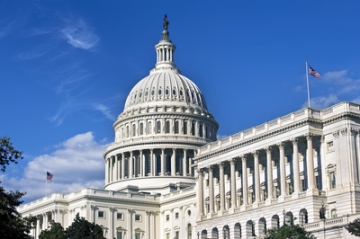Recent News & Blog / American Rescue Plan Act for local governments: Guidance from Treasury released

May 19, 2021
Last week, the U.S. Department of the Treasury announced the launch of the Coronavirus State and Local Fiscal Recovery Funds program authorized by the American Rescue Plan Act. This initiative provides $350 billion in emergency funding for eligible state, local, territorial, and Tribal governments to help turn the tide on the pandemic, address its economic fallout, and lay the foundation for a strong and equitable recovery.
How organizations will receive funding
If your jurisdiction is an eligible state, territorial, metropolitan city, county, or Tribal government, it can receive funding directly from Treasury.
- Your jurisdiction must submit a new request to receive this funding, even if it has previously used this portal to request funding from other programs.
If your jurisdiction is a non-entitlement unit of local government (NEU), it should expect to receive this funding through its applicable state government.
- NEUs have populations of less than 50,000.
- State governments that request their own funds from the Coronavirus State and Local Fiscal Recovery Funds will be considered by Treasury to have requested funding for their NEUs as well. Treasury expects to provide further guidance on distributions to NEUs.
- Pennsylvania will be providing information on the process for distributing these funds to NEUs within the state. In the meantime, have your DUNS number ready (see Treasury website). SAM registration is not required for NEUs.
Timing of funding
Money will be provided in two payments or "tranches." The first payment will be 50% of the distribution, to be received in 2021. States are to distribute these payments no later than 30 days after receipt of payment. The second payment will be received in 2022, approximately 12 months after the first payment.
It is unclear from the guidance whether interest income will be allowable for use by the recipient. It is recommended to establish a separate account.
Use of funds
Recipients may use these funds to:
- Support public health expenditures, by, for example, funding COVID-19 mitigation efforts, medical expenses, behavioral healthcare, and certain public health and safety staff
- Address negative economic impacts caused by the public health emergency, including economic harms to workers, households, small businesses, impacted industries, and the public sector
- Replace lost public sector revenue, using this funding to provide government services to the extent of the reduction in revenue experienced due to the pandemic
- Provide premium pay for essential workers, offering additional support to those who have and will bear the greatest health risks because of their service in critical infrastructure sectors
- Invest in water, sewer, and broadband infrastructure, making necessary investments to improve access to clean drinking water, support vital wastewater and stormwater infrastructure, and to expand access to broadband internet
Within these overall categories, recipients have broad flexibility to decide how best to use this funding to meet their needs. The funds can be used to cover eligible expenditures by December 31, 2024 and if contracted, by December 31, 2026. Local governments have time to properly plan the best use of these funds for their individual communities.
NEUs will be required to submit an annual project and expenditure report to the Treasury until December 31, 2026. The initial report will cover activity from the date of award through September 30, 2021, and reports will be required to be submitted annually by October 31 each year. There may be additional reporting at the state level, which has not yet been determined.
Single audit requirement
Federal funding is being provided under this Act. A CFDA number (the number assigned to a Federal program in the Catalog of Federal Domestic Assistance) has not yet been assigned to this funding source. A single audit will need to be completed if total expenditures (including Coronavirus Local Fiscal Recovery Funds) are over the $750,000 threshold within one fiscal year. The single audit is not based on when the funds are received. If all federal expenditures for an entity are less than $750,000 within a fiscal year, a single audit will not be required.
Additional information
Article source: treasury.gov
Related SEK blog post: Pre-award guidance from Treasury (April 26, 2021)
Treasury released the Interim Final Rule (IFR) for the program, which is a 151-page document that explains all the detailed answers. They also published two helpful summaries of the IFR: Fact Sheet and Frequently Asked Questions, which help to explain the Coronavirus State and Local Fiscal Recovery Funds in a more succinct format.
How SEK can help
The Governmental Services Team at SEK is here for you. We are available for consulting services as you prepare to receive your federal award. The cost of these services will be based on your organization's specific needs and the time involved. Use the form below to contact us and get started today!